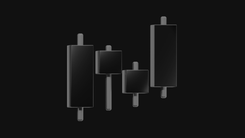- Wallet
- Coinhold 14% APY
- P2P No fee
- Mining
- Referrals
- About
- Help center
- Support
- FAQ
- Support
- For business
How Crypto Is Developing in Countries with Unstable Economies
In the context of economic crises, currency devaluations, and high inflation, cryptocurrency becomes not only an investment tool but also a survival mechanism for people in unstable countries. Let’s look at why crypto is in high demand in these regions, what risks and opportunities it brings, and how to protect your funds.
1. Why Crypto Becomes an Alternative
In many countries with unstable economies, people lose trust in their national currency and banking systems. Classic examples include Argentina, Turkey, Venezuela, Nigeria, and Lebanon.
What they have in common:
- high inflation (up to 100% annually or more)
- currency controls (restrictions or bans on buying US dollars)
- cash shortages and banking instability
- low trust in government institutions and financial sectors
In these conditions, cryptocurrency often becomes a substitute for the US dollar — it’s easy to buy, fast to transfer, helps protect against inflation, and can be used for international payments. In Turkey, crypto transaction volume surpassed $170 billion in 2024 (though in 2025, new restrictions on crypto operations have impacted official trading volumes). In Nigeria, over 25 million people now use crypto.
2. Popular Crypto Tools
The most common use cases include:
- Tether (USDT) and other stablecoins — used as a dollar substitute to hedge against local currency devaluation
- Bitcoin and Ethereum — considered long-term assets and often used for international transfers and wealth storage outside the banking system
- P2P platforms — allow users to buy and sell crypto without intermediaries or risk of account freezes, especially popular in countries with restrictions
- DeFi protocols — sometimes replace traditional bank deposits by providing yield in crypto
3. Risks for Users
Despite its advantages, mass adoption of crypto comes with risks, especially for non-professional investors.
- Fraud and scams — in unstable countries, scammers promise “guaranteed profits” or fast transfers
- Price volatility — even stablecoins can lose their peg temporarily, which is risky for large transfers
- Regulatory restrictions — governments aren’t just blocking platforms — in some countries, they’re also ramping up surveillance of P2P transactions, with cases of asset confiscation
- Storage issues — safe crypto storage is a challenge; account freezes or internet shutdowns often lead to wallet access loss
To reduce risks, it’s important to use trusted services and store crypto on platforms with high security standards.
4. How to Store Cryptocurrency Safely
In unstable economies, cold wallets and highly secure solutions are the best options. One such solution is EMCD Wallet, developed by the EMCD team.
EMCD Wallet supports Bitcoin, Litecoin, and other popular coins, offers two-factor authentication, and enables users to earn passive income from their holdings. Additionally, EMCD provides free access to P2P exchanges, which is especially useful in countries with currency controls.
5. Outlook
Despite risks and bans, cryptocurrency will continue to grow in countries with unstable economies. Where traditional financial systems fail, people turn to alternatives — and crypto plays this role. It already helps:
- preserve capital
- send money quickly within and outside the country
- earn through trading and staking
- participate in the global economy, bypassing restrictions
Moreover, many governments, even those threatening bans, are developing their own central bank digital currencies (CBDCs), which increases general awareness of digital assets.
Conclusion
In countries with economic problems, cryptocurrency is not about hype or speculation — it is about access to basic financial tools. While some people invest in tokens for growth, millions use crypto as a way to preserve their savings and freedom.
If you use crypto under such conditions, always think about security. Use trusted wallets like EMCD Wallet, and be careful at every step — from purchasing to storage.




